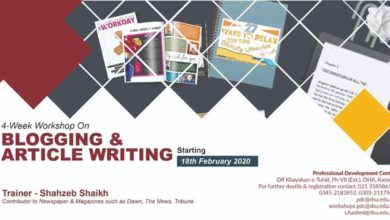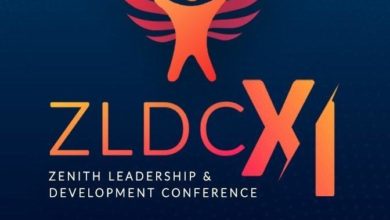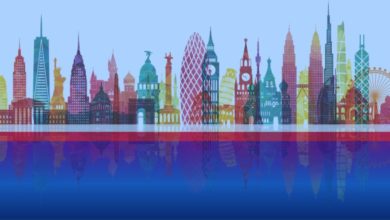Karachi Marriott Hotel” use_theme_fonts=”yes”][vc_column_text]
Are you a corporation or an organization that is concerned about efficiency of its water consumption? Are you a socially conscious firm striving to not only improve productivity of your own business, but also in sustainably using the community’s resources? The Center of Excellence in Responsible Business, CERB, is partnering with The Coca-Cola Company to conduct the workshop, “Accounting for Water: the Coca-Cola Way” on 1st August, 2019 at Marriott Hotel, Karachi, to address water conservation and management issues in the corporate sector.
[/vc_column_text][/vc_column][/vc_row][vc_row][vc_column][vc_column_text]We have heard it in the news and experienced it through our domestic taps that water in Pakistan’s biggest metropolis is scarce, and in many localities, a crying need. With more than 16 million-strong population, it is no surprise that Karachi is a very thirsty city. With an already short supply of water, Karachi, as economic hub of the country, needs millions of gallons of water each day for its industrial and commercial activities. As per official quota, Karachi receives only about 363.5 MGD for domestic consumption and 42.5 MGD for commercial and industrial usage, a whooping 30% of which gets wasted due to leakages and pilferage. Situation is worsened by the fact that whatever percentage the commercial and industrial sector gets, there is often irresponsible usage and wastage of water by their end. The issue is not limited to the particular city only, but this is now a global crisis, with Pakistan among the first countries on the receiving end of the crisis. United Nations Development Program has categorized Pakistan as one of the countries most affected by climate change. Consequently, and coupled with irresponsible use and wastage of water resources, Pakistan, has already crossed water stress line, and is now set to approach absolute water scarcity by the 2025 (which quiet worryingly, isn’t far away in time).
[/vc_column_text][/vc_column][/vc_row][vc_row][vc_column][vc_custom_heading text=”Why should industries be concerned?” use_theme_fonts=”yes”][/vc_column][/vc_row][vc_row][vc_column][vc_column_text css_animation=”none”]Water as a resource is an important input and a primary ingredient in operations of all companies, including their supply-chains. Many of companies’ raw materials come from agriculture, which needs a lot of water, and in many industries, water is the main raw material itself. Besides, there is a special responsibility that lies on the industrial sector.  Where city government and local businesses need to come up with ways to mitigate domestic consumption shortage, the corporate sector needs to make a thorough analysis of all its activities that may be harming the environment and its resources. Water management is a multi-dimensional process, ineffective method of which, harms other contingent development goals, and adversely impacts the community. If water is not being treated properly, or if water resources are being exploited unsustainability, it eventually ends up straining the environment, and in creating shortage for other people connected with it. Hence, industries need to treat water as preciously as it really is.
Where city government and local businesses need to come up with ways to mitigate domestic consumption shortage, the corporate sector needs to make a thorough analysis of all its activities that may be harming the environment and its resources. Water management is a multi-dimensional process, ineffective method of which, harms other contingent development goals, and adversely impacts the community. If water is not being treated properly, or if water resources are being exploited unsustainability, it eventually ends up straining the environment, and in creating shortage for other people connected with it. Hence, industries need to treat water as preciously as it really is.
This initiative is a great opportunity as organized by a non-profit that understands the severity of the issue, and has tailored workshops to help our businesses utilize resources efficiently. The Center of Excellence in Responsible Business (CERB) has been organizing a series of workshops under its “SDGs leadership program” to enhance consciousness of and to provide toolset for, sustainable growth and development. By keeping United Nation’s Sustainable Development Goals (SDGs) at the heart of its workshops, CERB partners with firms and organizations that are leading change in their respective domains. In this particular workshop, CERB is partnering with the Coca-Cola company to teach “Accounting for Water: the Coca-Cola Way”, where the 6th SDG on “Clean Water and Sanitation” will be addressed.
By keeping United Nation’s Sustainable Development Goals (SDGs) at the heart of its workshops, CERB partners with firms and organizations that are leading change in their respective domains. In this particular workshop, CERB is partnering with the Coca-Cola company to teach “Accounting for Water: the Coca-Cola Way”, where the 6th SDG on “Clean Water and Sanitation” will be addressed.
 to “Ensure access to water and sanitation for all” with important targets that go beyond universal access to safe water, sanitation and hygiene to include improving water quality and efficiency, protecting ecosystems and managing water resources sustainably, with cooperation and community engagement throughout.[/vc_column_text][/vc_column][/vc_row][vc_row][vc_column][vc_custom_heading text=”What will this workshop include?” use_theme_fonts=”yes”][/vc_column][/vc_row][vc_row][vc_column][vc_column_text]
to “Ensure access to water and sanitation for all” with important targets that go beyond universal access to safe water, sanitation and hygiene to include improving water quality and efficiency, protecting ecosystems and managing water resources sustainably, with cooperation and community engagement throughout.[/vc_column_text][/vc_column][/vc_row][vc_row][vc_column][vc_custom_heading text=”What will this workshop include?” use_theme_fonts=”yes”][/vc_column][/vc_row][vc_row][vc_column][vc_column_text] Coca-Cola will share how they are working towards water efficiency and replenishment in Pakistan. The workshop will teach you what you can do for responsible production, and how to be an enterprise that is critical to sustenance of the ecosystem. It will also help companies in identifying “water risks” in their operations, since the risks in disruption, unavailability or bad quality of water will severely impact production, sustainability and expansion of the local businesses. Besides this, different modules will help businesses to come up with personalized solutions and to redesign their supply-chain processes, so that they can use less and reuse more of water supplies. By calculating their environmental footprint and by recognizing their social responsibility, the companies will also map their commitment to achieving SDGs. Companies will henceforth also update their “corporate water strategy”.
Overall, the attendees will strengthen their understanding of risks and management of water resource through a holistic lens (since different SDGs are interlinked and efficient ways to use water directly and indirectly impacts entire communities socioeconomically). They will have a growing appreciation towards new and innovative ways to reduce wastage, and improve storage and recycling of water, with the end goal of developing strategies that address the shared water challenges faced along a supply-chain, in agricultural and other manufacturing operations.
[/vc_column_text][/vc_column][/vc_row][vc_row][vc_column][vc_custom_heading text=”What has the Coca-Cola Company been doing to address sustainable change?” use_theme_fonts=”yes”][/vc_column][/vc_row][vc_row][vc_column][vc_column_text]The Coca-Cola Company has been operating in Pakistan for over 60 years under the license of The Coca-Cola Export Corporation. It is no surprise that water is a vital resource to the world’s biggest beverage company. But with a commitment to creating sustainable communities, The Coca-Cola Company is actively involved in initiatives that reduce its environmental footprint, support active, healthy living, and enhance the economic development of the communities in which it operates.
Coca Cola is a leading example of companies that have recognized climate change crisis and operate businesses on models ideal to conservation and protection of water. Coca-Cola’s “safe water project” also addresses water hygiene in African and South Asian countries by halving the proportion of untreated wastewater and increasing recycling and safe reuse. Coca-Cola claims a full treatment of its wastewater before it is reused or discharged to the local environment, even when it is not mandated by local regulation, and it has achieved nearly full compliance with this strict standard. In addition to this, its water efficiency program aims to maximize water reuse in local communities.
Coca-Cola is now expanding international cooperation and capacity-building support to developing countries in water and sanitation related activities, including water harvesting, desalination, water efficiency, wastewater treatment, recycling and reuse technologies. Coca-Cola will hence teach you the “right way to do the business” in its Water Stewardship Program (hyperlink: https://www.coca-colacompany.com/tags/water-stewardship). Coca-Cola openly shares the details of all of its water projects not only to further transparency but also to inspire others to act and to share environment-friendly practices. The company’s partnerships with WWF and UNDP, and with local businesses, are designed and maintained to share, scale and replicate solutions. Being a multinational corporation with a local footprint of its operations, Coca-Cola is in a strong position to leverage its experience and take action on water globally.
Coca-Cola will hence teach you the “right way to do the business” in its Water Stewardship Program (hyperlink: https://www.coca-colacompany.com/tags/water-stewardship). Coca-Cola openly shares the details of all of its water projects not only to further transparency but also to inspire others to act and to share environment-friendly practices. The company’s partnerships with WWF and UNDP, and with local businesses, are designed and maintained to share, scale and replicate solutions. Being a multinational corporation with a local footprint of its operations, Coca-Cola is in a strong position to leverage its experience and take action on water globally.
Follow Coca-Cola’s official twitter hashtag #CocaColaReplenishment to keep posted about the company’s initiatives on this turf.
[/vc_column_text][/vc_column][/vc_row][vc_row][vc_column][vc_video link=”https://www.youtube.com/watch?v=755zckCQy8E” align=”center”][/vc_column][/vc_row][vc_row][vc_column][vc_column_text]It is time to change our corporate culture to safer and greener businesses, and to model them in the most resource-efficient way. Change does not happen in a vacuum and for sustainable growth, it is needed that both public and private entities work both at their individual level and together, for us to get to the other side of the crisis safely and in time.
[/vc_column_text][/vc_column][/vc_row]


